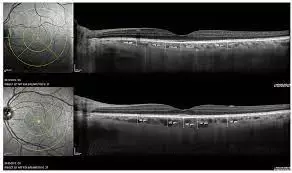- Home
- Medical news & Guidelines
- Anesthesiology
- Cardiology and CTVS
- Critical Care
- Dentistry
- Dermatology
- Diabetes and Endocrinology
- ENT
- Gastroenterology
- Medicine
- Nephrology
- Neurology
- Obstretics-Gynaecology
- Oncology
- Ophthalmology
- Orthopaedics
- Pediatrics-Neonatology
- Psychiatry
- Pulmonology
- Radiology
- Surgery
- Urology
- Laboratory Medicine
- Diet
- Nursing
- Paramedical
- Physiotherapy
- Health news
- Fact Check
- Bone Health Fact Check
- Brain Health Fact Check
- Cancer Related Fact Check
- Child Care Fact Check
- Dental and oral health fact check
- Diabetes and metabolic health fact check
- Diet and Nutrition Fact Check
- Eye and ENT Care Fact Check
- Fitness fact check
- Gut health fact check
- Heart health fact check
- Kidney health fact check
- Medical education fact check
- Men's health fact check
- Respiratory fact check
- Skin and hair care fact check
- Vaccine and Immunization fact check
- Women's health fact check
- AYUSH
- State News
- Andaman and Nicobar Islands
- Andhra Pradesh
- Arunachal Pradesh
- Assam
- Bihar
- Chandigarh
- Chattisgarh
- Dadra and Nagar Haveli
- Daman and Diu
- Delhi
- Goa
- Gujarat
- Haryana
- Himachal Pradesh
- Jammu & Kashmir
- Jharkhand
- Karnataka
- Kerala
- Ladakh
- Lakshadweep
- Madhya Pradesh
- Maharashtra
- Manipur
- Meghalaya
- Mizoram
- Nagaland
- Odisha
- Puducherry
- Punjab
- Rajasthan
- Sikkim
- Tamil Nadu
- Telangana
- Tripura
- Uttar Pradesh
- Uttrakhand
- West Bengal
- Medical Education
- Industry
Retinal OCT measurements may Predict future cognitive impairment

Researchers have found in a retrospective study after examining 50,000 optical coherence tomography (OCT) images from a large database that thicknesses of several different retinal layers were significantly associated with Alzheimer’s disease and Parkinson’s disease polygenic risk scores. Further higher baseline thickness of two specific retinal layers was also significantly associated with poorer clinical cognitive performance in the future
The new study has been published in the British Journal of Opthamology.
A study was done to evaluate the potential of retinal optical coherence tomography (OCT) measurements and polygenic risk scores (PRS) to identify people at risk of cognitive impairment.
Using OCT images from 50 342 UK Biobank participants, we examined associations between retinal layer thickness and genetic risk for neurodegenerative disease and combined these metrics with PRS to predict baseline cognitive function and future cognitive deterioration. Multivariate Cox proportional hazard models were used to predict cognitive performance. P values for retinal thickness analyses are false-discovery-rate-adjusted.
Results
Higher Alzheimer’s disease PRS was associated with a thicker inner nuclear layer (INL), chorio-scleral interface (CSI) and inner plexiform layer (IPL) (all p<0.05).
Higher Parkinson’s disease PRS was associated with thinner outer plexiform layer (p<0.001).
Worse baseline cognitive performance was associated with thinner retinal nerve fibre layer (RNFL) and photoreceptor (PR) segment, ganglion cell complex and thicker ganglion cell layer, IPL, INL and CSI
Worse future cognitive performance was associated with thicker IPL and CSI
Prediction of cognitive decline was significantly improved with the addition of PRS and retinal measurements.
The researchers concluded that retinal optical coherence tomography measurements are significantly associated with genetic risk of neurodegenerative disease and may serve as biomarkers predictive of future cognitive impairment.
Refernece:
Sekimitsu S, Shweikh Y, Shareef S, et alAssociation of retinal optical coherence tomography metrics and polygenic risk scores with cognitive function and future cognitive decline. British Journal of Ophthalmology Published Online First: 29 March 2023. doi: 10.1136/bjo-2022-322762
Dr. Shravani Dali has completed her BDS from Pravara institute of medical sciences, loni. Following which she extensively worked in the healthcare sector for 2+ years. She has been actively involved in writing blogs in field of health and wellness. Currently she is pursuing her Masters of public health-health administration from Tata institute of social sciences. She can be contacted at editorial@medicaldialogues.in.
Dr Kamal Kant Kohli-MBBS, DTCD- a chest specialist with more than 30 years of practice and a flair for writing clinical articles, Dr Kamal Kant Kohli joined Medical Dialogues as a Chief Editor of Medical News. Besides writing articles, as an editor, he proofreads and verifies all the medical content published on Medical Dialogues including those coming from journals, studies,medical conferences,guidelines etc. Email: drkohli@medicaldialogues.in. Contact no. 011-43720751


